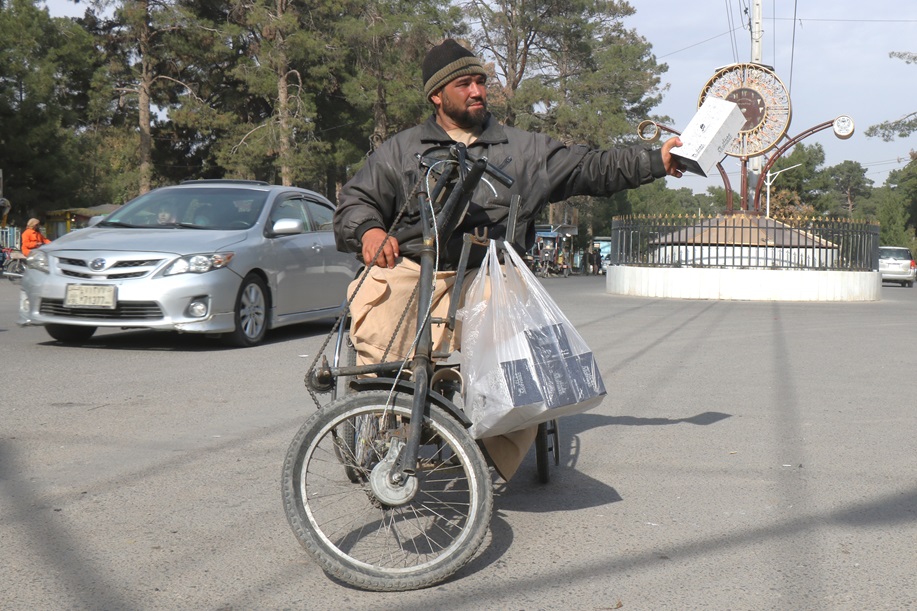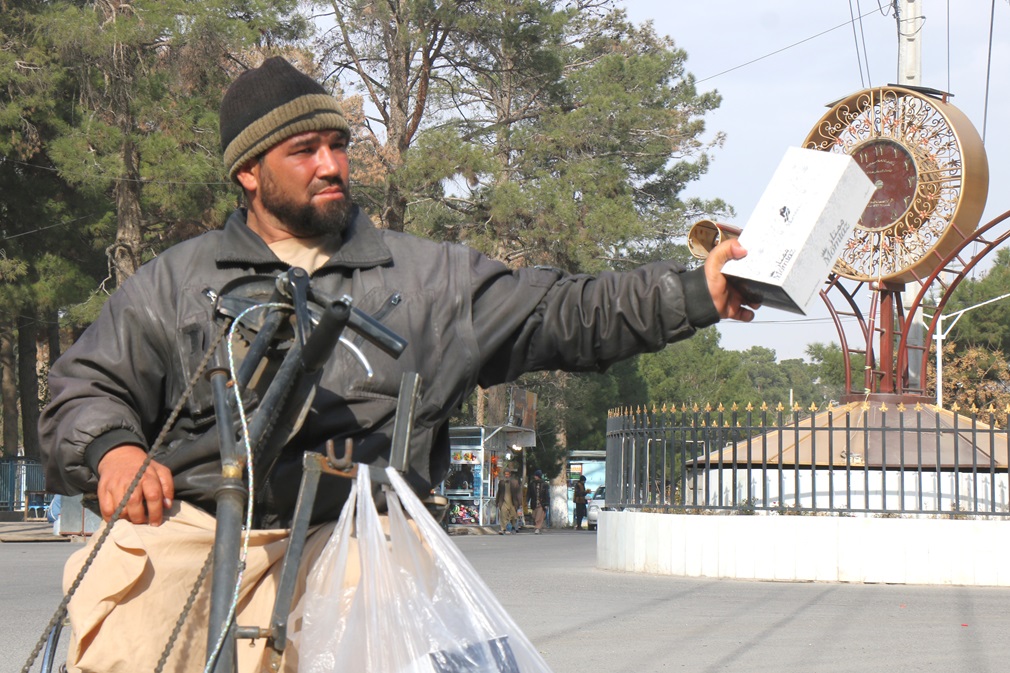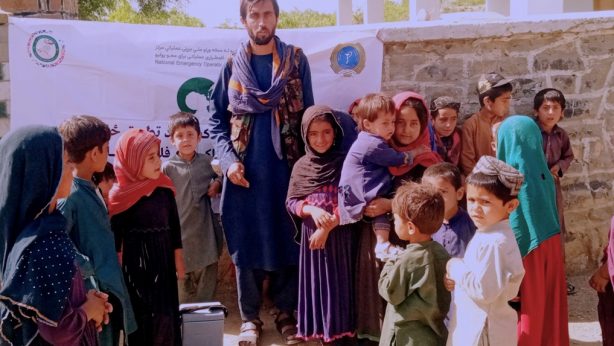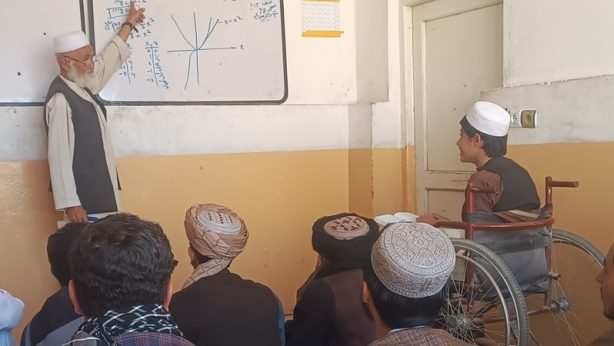How Polio Paralyzed My Dreams: A Young Man’s Story

Marzia Frotan
Herat, Afghanistan – In the prime of his youth, Abdul Ghafoor, whose leg has been disabled due to polio, navigates the streets of the city in his wheelchair, selling tissue papers.
He, who completed 30 years of life this year, became disabled at the age of four due to polio.
Abdul Ghafoor resides with his family of six, including his wife, two children, and elderly parents, in a rented adobe house located in the Kandahar Gate area, south of Herat city
Every day, he commutes about 5 kilometers on his wheelchair to sell tissue papers in “Garda Park”, a densely populated area of Herat city.
He said that years ago, when he was a child and had just started walking, he contracted polio, leading to him losing the ability to walk.
He added, “People my age engage in sports and have built good lives for themselves, but polio has deprived me of this opportunity. When I see them, I wish I had been vaccinated in my childhood as well, and now I would have led a healthy life.”
He said that at the time he contracted polio, his parents lived in a village in Ube district of Herat province and house-to-house anti-polio vaccination had not been started.
 Polio stricken Abdul Ghafoor travels about 5 kilometers on his wheelchair to sell tissue papers in “Garda Park,” a densely populated area of Herat city. © Polio Free Afghanistan/ 1402/ Marzia Frotan
Polio stricken Abdul Ghafoor travels about 5 kilometers on his wheelchair to sell tissue papers in “Garda Park,” a densely populated area of Herat city. © Polio Free Afghanistan/ 1402/ Marzia Frotan
High expenses but low income
Abdul Ghafoor is the sole breadwinner in his family of six. He earns about 100 Afghanis every day by selling tissue papers. However, he pays 1500 Afghanis in rent every month.
He stated that his income is significantly less than his expenses, and he requires the helping hand of his neighbors and relatives to sustain his livelihood. He added, “I navigate the city streets in a wheelchair from morning till evening to provide for my family. But, earning money under these circumstances is exceedingly challenging.”
Abdul Ghafoor buys each package of tissue papers for 40 Afghanis and sells them for 50 Afghanis.
Abdul Ghafoor’s wife is also disabled.
Abdul Ghafoor’s wife, Zainab, is also disabled, having lost the ability to walk in one of her legs due to polio.
She, who is now 25 years old, contracted polio at the age of 5 due to not being vaccinated.
Zainab, the daughter of Abdul Ghafoor’s maternal uncle, married Abdul Ghafoor due to their disabilities, and they began living together. They have a four-year-old son and a one-year-old daughter.
The parents, having experienced the challenges of polio themselves, are committed to ensuring that their children are protected from the disease through vaccination in every polio vaccination campaign.
Zainab expressed that poverty and economic problems may be manageable, but it’s intolerable for her to see her children not receive vaccinated.
Zainab added, “To prevent my children from contracting polio like me and my husband, I vaccinate them during every vaccination campaign.”
Abdul Ghafoor, just like Zainab, asserts that it is the responsibility of all families to vaccinate their children during every polio vaccination campaign so that they can be protected from polio.
Parents who do not give their children the polio vaccine should consider my situation.” Do they want their children to endure hardships and suffering like me?”
 Abdul Ghafoor selling tissue papers in Herat © Polio free Afghanistan/1402/ Marzia Frotan
Abdul Ghafoor selling tissue papers in Herat © Polio free Afghanistan/1402/ Marzia Frotan
Fazal Ahmad, a 45-year-old shop owner in Garda Park, Herat city, witnesses the daily hardships faced by Abdul Ghafoor. He says that despite Abdul Ghafoor’s physical limitations, he strives to provide food for his family.
He added, “Abdul Ghafoor navigates the streets on his wheelchair throughout the day, regardless of the hot or cold weather, selling tissue papers. He endures these hardships in order to provide food for his children.
Fazal Ahmad, upon witnessing Abdul Ghafoor’s conditions, ensures to vaccinate his children, to protect them from suffering a similar fate.
The precise count of individuals disabled by polio in Herat remains unknown, but each day, dozens of affected individuals are forced to resort to begging.


